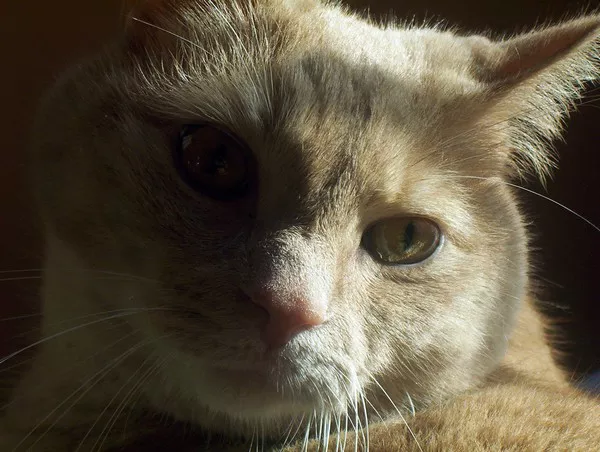BOULDER COUNTY, Colo. – Alice Shi Kembel is grateful that her cat, Sushi, has made a recovery after testing positive for tularemia earlier this month. This bacterial infection, also known as “rabbit fever,” can be spread by insects or wild animals.
Sushi, an indoor and outdoor cat residing in rural Boulder County, became severely ill after killing a rabbit in early July. Alice recounted the distressing days following the incident.
“He wasn’t eating or drinking anything. He was really lethargic,” Alice said. “There were definitely times I thought he wasn’t going to make it.”
Sushi was taken to the Veterinary Emergency Group in Boulder, where he spent two nights. Initially, his condition was difficult to diagnose. However, Alice, having recently read about tularemia in a county alert and a news article on KDVR.com, suggested testing for the infection.
Lindsey Geiger, a veterinarian at the clinic, mentioned that testing for tularemia is not common practice. However, given Sushi’s recent encounter with a rabbit, they decided to proceed with the test, which came back positive.
Geiger explained that tularemia, although rare, does occur in animals and humans every year. It can be transmitted through infected insects, animals, contaminated food or water, or airborne bacteria.
“The way that it typically gets to humans is our domestic animals either ingest one of those animals or come into contact with them, and then it’s transmitted to humans from there. Humans can even get it if you pull a rabbit out of your dog’s mouth,” Geiger said.
Following Sushi’s diagnosis, the health department alerted those who had contact with him, and fortunately, no human cases resulted. Alice hopes that her experience will raise awareness among pet owners, particularly those with outdoor animals.
“I just want people to know it’s a possibility if they have outdoor animals,” she said.
Alice’s veterinary bill totaled around $7,000. She expressed relief that her pet insurance covered 80% of the expenses.
In a related incident, a human case of tularemia was diagnosed in Wheat Ridge this summer. Health officials emphasize the importance of basic precautions, such as avoiding contact with wild animals, dead or alive, to prevent infection.
Sushi’s recovery story underscores the need for pet owners to be vigilant about the health risks associated with their animals’ outdoor activities. By sharing her story, Alice hopes to inform and protect other pet owners from similar experiences.



























